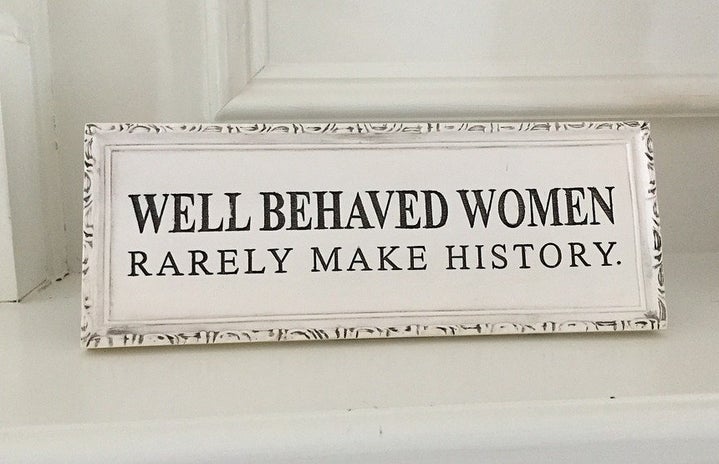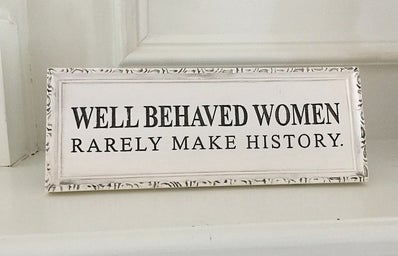2020 was an election year where women made history — Black, Latina, Indigenous and all women of color, especially. It’s no coincidence that this year is also the 100th anniversary of the passage of the 19th Amendment, declaring that the right to vote in the United States couldn’t be denied on the basis of sex.
However, the fight for women’s suffrage didn’t just stop there, nor did it mean that all women could vote.
For decades to come, minority women and Black Americans would continue to be misrepresented by Jim Crow policies: “white primary” laws, violence, and many other voter suppression tactics. So, if there’s anything we’ve learned, it’s not enough to give someone the right to vote; if they’re not properly represented, their voices will not be heard.
Let’s consider this: it’s been nearly a century since the 19th Amendment, and in every presidential election dating back to 1984, reports have shown that women turned out to vote at higher rates than men.
If this doesn’t showcase how resilient women are, especially when faced with adversity, then what does?
In this 2020 election alone, early exit polls showed President-elect Biden winning the votes of 57% of women, while President Trump won 42% of women’s votes. Reports also showed that 91% of African-American women voted for Biden and Harris, bringing it home for them.
So, yes, it’s an understatement that women and women of color are a growing force in the electorate and deserve to be recognized for their significant political influence.
Kamala Harris is the first woman, first Black and first South Asian American to be elected to serve as our nation’s vice president. I’ll admit, some of the first words that came to mind were: “Wow, I can do it too someday.” I wish it hadn’t taken this long, but I’m proud of what it means for all women, and we wouldn’t be here today without the ones that came before us.
This remarkable moment in our history reminds me of one of my favorite phrases: #SheSePuede: Yes She Can. Because, as a young Hispanic woman, I know there’s nothing stopping me from achieving my goals and making a difference in this world.
This victory isn’t separate from the ground-breaking work done by grass-roots organizers in key states like Georgia. Who would have thought a Deep South state would go blue, especially since this would be the first time a Democratic presidential candidate would flip the state since 1992? This wouldn’t have been possible without the strong coalition of Black women that continue the fight against voter suppression and protecting voting rights. Some of these women are LaTosha Brown, Stacey Abrams, Nse Ufot, Melanie L. Campbell, Tamieka Atkins, Deborah Scott and many more.
So, what does this mean for us?
It’s a reminder that instituting meaningful and long-lasting change in a system that has historically ignored the voices of so many is an ever-evolving process. It’s taken more than enough time for women to receive a sliver of representation in the highest-ranking office in our government. This should demonstrate to us that we have work to do — but that we CAN do it.
I hope that one day, women holding positions of power and in the decision-making process of this country is no longer news or something to be shocked by, but rather a standard to be met. Policy agendas and legislation are meaningless if they’re not reflective of women’s experiences and perspectives on issues like education, healthcare, reproductive rights, the economy, the environment, racial inequality and so much more.
It’s time that we stop confusing sensitivity and empathy, characteristics often associated with women, for weakness, and recognize the unique touch it brings to leadership in all realms.
As women, we should unapologetically embrace our ambition, success, fearlessness and pioneering spirit. Because I promise you, there’s nothing we can’t do.
As Kamala Harris, Vice-President Elect recently said: “But while I may be the first woman in this office — I will not be the last.” And I know she’s right.




